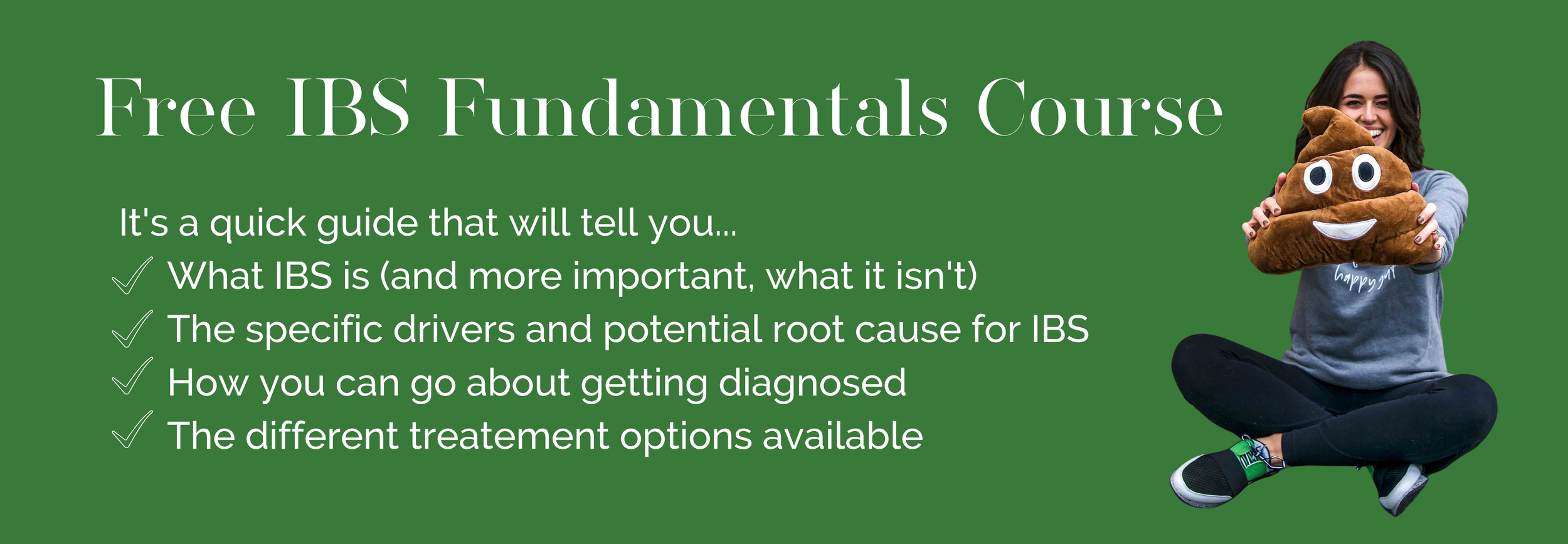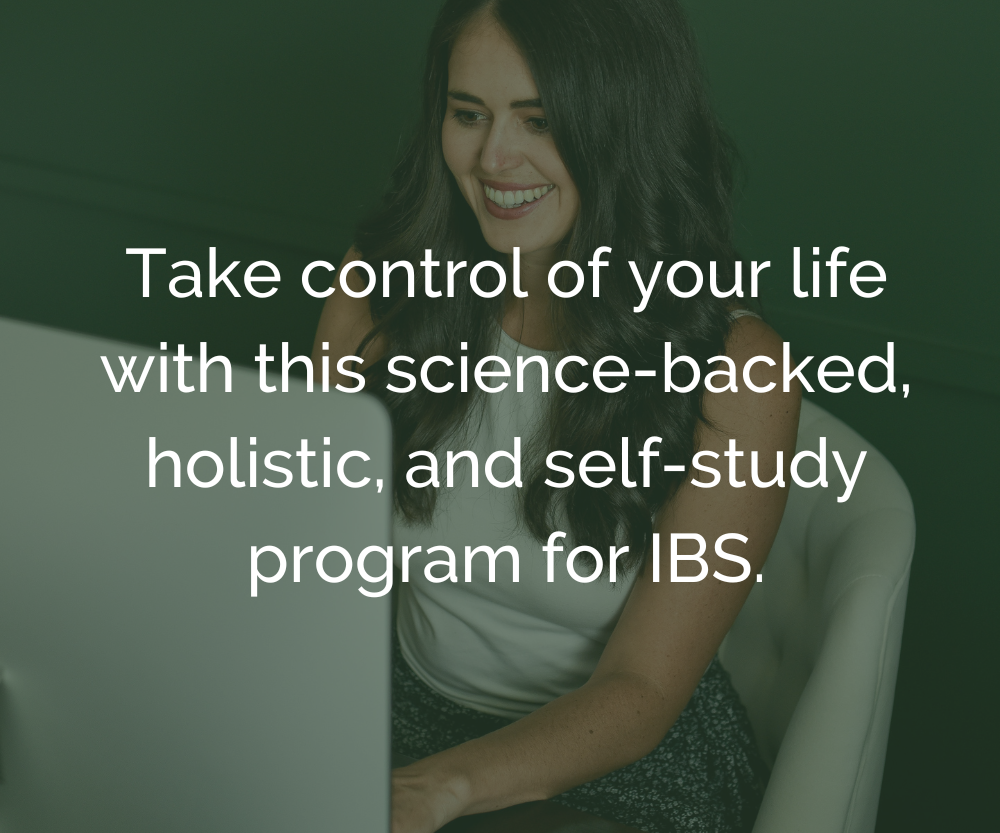The Best Protein Powders for IBS
Protein is a macronutrient, meaning it plays a vital role in overall nutrition as a core building block for health.
Protein is made up of amino acids that break down through digestion, then form again inside our bodies to build tissues, including muscle, protective layers of organs, and skin!
Protein can come from animal sources, including meat and dairy, as well as plant sources, including legumes, nuts, seeds, grains, and soy. It’s important to eat a variety of protein sources to get all of the amino acids your body needs.
Some people have a hard time getting enough protein through whole food sources, due to inability to prepare meals, food allergies or intolerances, high protein needs, and simply preference of certain foods over others. This is where protein powders can come in handy.
Protein powders are isolated protein from different whole food sources, and can come in three different forms: concentrate, isolate, and hydrolysate.
Concentrate: protein is extracted from a whole food source using heat and acid or enzymes. 60-80% is protein and 20-40% is carbohydrate and fat.
Isolate: extracted like concentrate, then goes through another filtering step to remove carbohydrate and fat. 90-95% is protein.
Hydrolysate: goes through a final step to break down amino acids in simpler forms, using heat and acid or enzymes. This version is more easily absorbed.
What’s your poop personality? Find out here!
For IBS and chronic digestive symptoms, protein powders can be tricky. If the source of the protein is a high FODMAP food (learn more about FODMAPs here), like peas, you will want most of the carbohydrate removed, in its isolate form. Same for whey, to ensure it is lactose-free.
Because protein powders are already broken down from whole foods, many with IBS may not tolerate them well. Always try a small amount, before moving towards a full serving, to test your tolerance.
Also, be mindful of any added ingredients. Most protein powders will have added flavor, which comes with many ingredients that are high FODMAP, including honey, agave, artificial sweeteners, inulin, and chicory root. Gums may also be tricky for those with IBS, so it’s important to know your tolerance of these additives before investing in a protein powder.
If you do choose to add a protein powder to your diet for a morning smoothie, or post-workout snack, your low FODMAP options will include whey, pea, hemp, brown rice, and soy isolate.
Whey
Whey protein is isolated from the liquid part of cow’s milk that is separated in cheese making. It contains a variety of proteins from milk, and the isolate version is low lactose. One serving can range between 25-50 grams of protein, but it’s best to stick closer to 25 grams or less per serving, to avoid digestive issues. If you’re allergic to milk, this would not be a great option.
Low FODMAP options to try:
Pea
Pea protein is isolated from ground yellow peas. It is naturally rich in quality protein, as well as iron. One serving will typically give you 15 grams of protein, which is closer to a recommended amount per meal, for most individuals. This one is naturally gluten and dairy-free. Many with IBS are concerned about pea protein because peas can be higher FODMAP. but Monash University shows one serving of pea protein to be low!
My favorite option here is TumLove. They make fully IBS-friendly blends, with pea protein as the main source! You can save 15% off your order with code ERINRD15 (affiliate code).
Here are a few certified low FODMAP blends that use pea protein as their main source:
Hemp
Hemp protein powder is made by grinding hemp seeds into a powder. Instead of extracting the protein, you are eating the entire seed. This is a complete protein, but since the protein isn’t isolated, you will get a little less protein per serving that other options. One serving could provide 10-15 grams of protein, but will be much higher in calories than your pea protein option.
This is a great option for those on a plant-based diet, and for those who prefer less processed protein options.
Try this one!
Brown Rice
Brown rice protein powders are isolated from brown rice. This won’t be a complete protein, meaning it won’t have all essential amino acids, so many products also include quinoa and chia, which are both complete proteins and also low FODMAP! One serving will give you around 20 grams of protein, so this is a great vegan and gluten-free option for someone with higher protein needs.
Try this one!
Soy Isolate
Soy isolate is extracted from soybeans and one serving can give you 20 grams of protein, but it is one of the more controversial plant-based protein options. While soybeans can be a great source of protein for plant-based eaters, there could be ingredients in soy isolate powder that can be toxic or decrease mineral absorption. More studies need to be done.
This is a low FODMAP option, but I typically don’t recommend it to my clients. Instead, if you’re a plant-based eater, you can benefit from soy by eating edamame, tofu, and tempeh!
If you want to try a soy isolate option, go for this one!
More Low FODMAP Options
The bottom line with protein powders is that they aren’t necessary, but can be helpful, in moderation. If you’re getting all of your protein from powders, I suggest working with a dietitian, like myself, to increase variety in your food choices and go for more whole foods sources. If you’re choosing a protein powder for convenience, or to increase overall protein intake, be mindful of the source of protein, added ingredients, and the amount you are taking in per serving. The body only processes around 15-25 grams of protein at a time, so large amounts of supplemental protein aren’t necessary.
If you’re dealing with IBS and aren’t sure how to manage your symptoms, the MASTER Method group program may be the solution you’ve been looking for. It is possible to feel confident in how you manage symptoms. Learn more here!
Are you frustrated with your IBS symptoms? Do you desire to be confident in your food choices? Do you want to have a healthier relationship with your body and diet? Are you ready to take control of your IBS?



